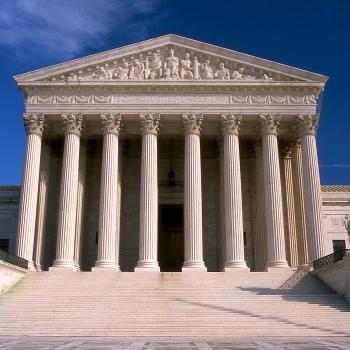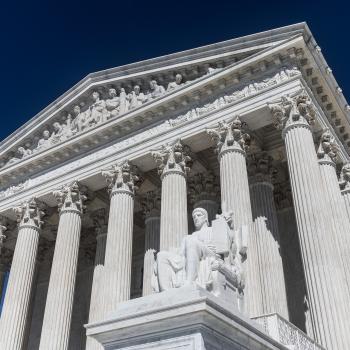It’s June 27th. We’re back with Jody, and Jody is still in Geneva.
Jody Easler was bored. When she first arrived in Geneva she had engaged herself in every detail of every report with the same kind of passion that had energized her ten-year career.
In case you needed reminding that she’s young.
It was the fight for “the children,” and she cared. Something in her feminine instincts cared very deeply.
While some others believed that maternal feelings were an antifeminist deviation from the truth, she had been very carefully taught that feminine instincts were quite powerful, even spiritual in a non theistic way. Some of her mentors might even say that truth was bound up in the Goddess—and she respected that, though Jody herself had never gone down that path.
At their foundation, Jody’s feminine instincts were for the children, not for the politics and power and position.
I’m actually kind of impressed that Farris knows about differences among feminists of this sort. He’s absolutely right that there are some feminists who talk about tapping into the feminine and the maternal and the goddess, etc. Others downplay the idea of a “maternal” instinct, arguing that the idea that women are especially nurturing stems in part from social conditioning and in par from simple stereotype and bias in perception.
I do not, however, like where Farris is taking this idea—at all. One can care about children and also about politics and power—and one can care about children without being a woman, or being feminine. Farris wants Jody’s interest in children to stem from her natural maternal instinct, and not at all from her professional training or personal interest.
And then there’s this bit:
Yet the longer she stayed in Geneva, the more she understood that the top leadership was all about power and not about children.
She did a mental inventory of the ten members around the table. Three of the committee were married. Two had children. The married woman from China had one. The single woman from Nigeria had two.
How nice that the Nigerian woman with children gets to be the single one.
I thought about looking up each member of the committee to check how many actually have children, but I stopped myself for two reasons. First, there’s a logistical problem—you don’t put your children on your professional biography or CV. This means it would be virtually impossible to determine how many have children, which means that Farris doesn’t know either. He made that up. But second, it does not matter.
The idea that someone should have to have children in order to care about children is absurd. I perused the CVs of a few of the committee’s members just now, and their passion and expertise is written all over those pages. These people care about stateless children, children without access to medical care, refugee children, children who experience sexual violence or trafficking, the rights of Roma children, and children’s freedom of expression.
Also? If you were after power, this would be a terrible committee to be on. The committee is not seen as particularly consequential—among all of the other issues before the U.N. or individual nation’a governments—and it doesn’t actually have that much power. If Kadar is merely power hungry, she’s chosen the wrong place to look for it. What is she after, exactly? What is her end game?
Anyway, once the meeting finishes, an aide tells Jody that “Dr. Kadar” would like to see her. Jody goes, but she’s “terse” with Kadar. She’s still upset about what happened at Murten. That was never resolved. This makes her nervous. For whatever reason, though, she hasn’t told anyone about it. You’d think she’d have American consulate staff or some such, who didn’t answer to Kadar, that she could talk to and ask advice from, but nope.
“Dr. Easler, I think I have some good news for you.”
Jody’s tensed muscles relaxed only slightly. “Good news? I am ready for some good news.”
“Your friend Cooper Stone appears to be ready to step out of the litigation.”
“Why is that good news?”
“It may or may not be good news from the perspective of our litigation strategy because his apparent replacement has substantial Supreme Court experience. But I thought it would be good news to you personally.”
“Why so?”
“Because we won’t have to use the photographs of the two of you in New York.”
And here’s where things get weird. Jody says she didn’t think there were any photographs, because Cooper never came into her room. Kadar says that the photographer got a shot of the two of them “in a nice romantic embrace in some carriage.” She assumed that was Jody adapting the plan, but Jody says she had no idea the photographer had a view of them—which raises a question. Why did she kiss Cooper? What makes Jody tick?
Kadar says they were going to print the photographs in another week or two “to throw the other side into confusion,” but that if Cooper is leaving the case they won’t need to. Jody is shocked and horrified.
“And what is this about printing the photos? Are you all crazy? I knew you planned to blackmail him quietly but to use them in public? That would drag me through the mud as well.”
“…If one of our own gets some mud on them, so what? No one cares. It is Mr. Stone’s side of this battle that cares about such indiscretions.”
Um … actually I’m pretty sure people on our “side” would care. The issue here isn’t a moral one. It’s an ethical one. Jody is a U.S. ambassador and is involved on one side of a major lawsuit over the impact of a U.N. convention on U.S. law. Photos of her locked in a “romantic embrace” with the lawyer arguing the opposite side of this lawsuit should raise major questions—and potentially cost her her position.
Weirdly, that’s not what Jody cares about.
“Wait a minute! I care! I care a great deal! I don’t want to look like your cheap tramp. If it is published, it will look like I trapped him into kissing me.”
Nothing makes sense in this novel.
Jody should be concerned about what will people think of her publicly kissing the lawyer leading the cause to sink the treaty she devoted her career to getting the Senate to ratify. Instead she’s worried people will think she’s a tramp??
What???
Kadar goads Jody.
“We have noticed that you seemed especially solicitous of Mr. Stone. Whispered conversations in television studios and the like. But that seems to have died down. We have detected no recent content.”
“You have detected? You admit you are spying on me? I have suspected it, but I never believed you would admit it.”
“Oh come now, Dr. Easler—you know the rules of engagement. Nothing is left to chance. The loyalty of the movement on the part of one of our key players is always essential.”
Okay, but, in real life, that’s not how you ensure loyalty. Unless you’re from North Korea or Saudi Arabia, of course—or staring in a Bond movie. That is definitely how you ensure loyalty in a Bond movie. But if an American ambassador were being followed and spied on and threatened, I’m fairly sure there’s someone she could report that to.
Scene change!
Cooper keeps receiving envelopes with cash in them, and I find this entire plot completely uninteresting. They’ve received $7,235 so far, most of it in $25 checks. Nancy, his secretary, mentions that one of the envelopes had a note that said “something about word being passed among some chat room people and e-mail,” but before Cooper can follow up on that—his mind goes immediately to Sally’s chat room—Nancy gives him a letter from a Laura Frasier.
Drumroll, please!
Dear Cooper,
I am writing to you to apologize for breaking a confidence. As you know, after you me t with the four parents, Deanna told me about the results of the meeting. I in turn told Terry. Terry then told the Washington Times. It was never my intention to hurt you or to cause any difficulties for the case.
Terry made it plain that his motive was simply to keep me from having contact with you. He apparently felt that until the announcement was public, that there was always a danger you would stay on the case. I am certain that he told the New York Times about the earlier matter, though he refuses to give me a straight answer on the subject.
In any event, will you forgive me?
I shouldn’t give you any more problems in this regard in the future for two reasons. One, I have come down to Florida to stay with my parents for the rest of the summer, so I won’t be around to mess things up. Second, Terry and I have broken off our engagement, so there won’t be the need to tell him of such matters in the future.
Again I am sorry.
Blessings,
Laura
As far as I’m concerned, Deanna is the leaker here, not Laura. Laura was never authorized to learn either about the anonymous funder or about Cooper leaving the case. Deanna was sworn to secrecy on both counts and told Laura anyway. The first time, Deanna also told Terry, who was there. The second time, Deanna likely neglected to tell Laura that the information (the pending switch to new lawyers) was confidential.
What is Cooper’s response to the letter?
Deanna had to have told her. He didn’t even bother to call to yell at her. Come to think of it, why would I yell at Deanna? Maybe he should just be released.
Cool cool cool.
Cooper dialed directory assistance and got the phone number for Laura’s parents by using the address on the envelope.
Cooper. What are you doing! Laura very specifically did not call to convey this information! Her use of a written letter suggests a desire for some distance from the case, from Virginia, and from him.
He paused, thought better of it, and hung up the phone.
Good Cooper. Follow that impulse.
He would wait for at least twenty-four hours before calling.
*headdesk*
It would give him time to think and pray about what he hoped would be one of the most important phone calls in his life.
Dammit, Cooper. Give the woman some room. She just broke up with her boyfriend of eight years—the only guy she’s ever dated. Can you let her process for a hot second?
Scene change!
Cooper wants to check up on the tip about the money in the envelopes coming from asks shared via email and chat room. To do this, Cooper logs into Sally’s chatroom at 11pm. Sally is there, and all the regulars. Cooper thanks them, and they immediately own up to being the source.
MissSally: How much have you gotten so far?
CooperStone: Over $7000.
Angelic: How much from Canada?
CooperStone: Yeah, that was one of the big surprises. We have over $1000 from Canada.
Firemomma: Angelic, take a bow.
This is the only thing Angelic says in this whole three-page chat transcript. She really does exist just to mention Canada.
Saddlepal: I think it is great. I am in the mail business here in Montana, and I think you can expect a lot more.
MissSally: You are in the mail business in Montana? I thought you were a cowboy from Texas. I’m so bummed.
This leads to a back and forth between Saddlepal and Sally about where they live, and, when it comes out that Saddlepal will be in Spokane on business the following week, they take their exchange to email to set up meeting for dinner. Interspersed among their chat messages are other messages—Firemomma wants to tell a story about her kid, among other banter. This feels so real it makes me wonder whether Farris frequented chat rooms himself during this period.
But wait! We’re still not done!
Cooper gets off the computer and gets in bed. As he’s about to fall asleep his phone rings.
“Cooper?” It was a female voice that sounded only vaguely familiar.
He sat up. “Yeah? Who’s this?”
“Jody.”
Surprise!
Jody is calling Cooper from Geneva. It’s 6am in Geneva, and Jody has “sequestered herself in a secure diplomatic office with lines that were regularly screened for espionage interference.” Even with that secure line, the only person she can think to call is Cooper. Apparently. Somehow. She tells Cooper she wants to meet him to tell him something important.
Jody says she’ll get into Dulles at 3pm and that she’d like to meet Cooper for dinner at the restaurant at the Lansdowne Hotel, which she describes as “out of the way” so that she won’t “be recognized.” That sounds like bullshit. How does she know she won’t be followed? Besides, the Lansdowne is a big fancy resort hotel, just the sort of place where she would be recognized. Cooper points this out: “Too many D.C. types there,” he says.
So they arrange to meet at Cooper’s suggested location—Al’s Pizza in Purcellville. “Nobody from D.C. would ever think to look for a U.S. ambassador there,” he says. One problem: it sounds like the sort of place where people will recognize Cooper. If Jody really wants this meeting to be secret, why meet somewhere where everyone will recognize the guys he’s meeting with?
Neither Cooper nor Jody are any good at being private agents.
I have a Patreon! Please support my writing!















